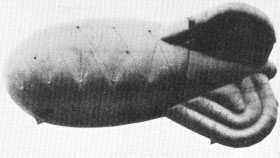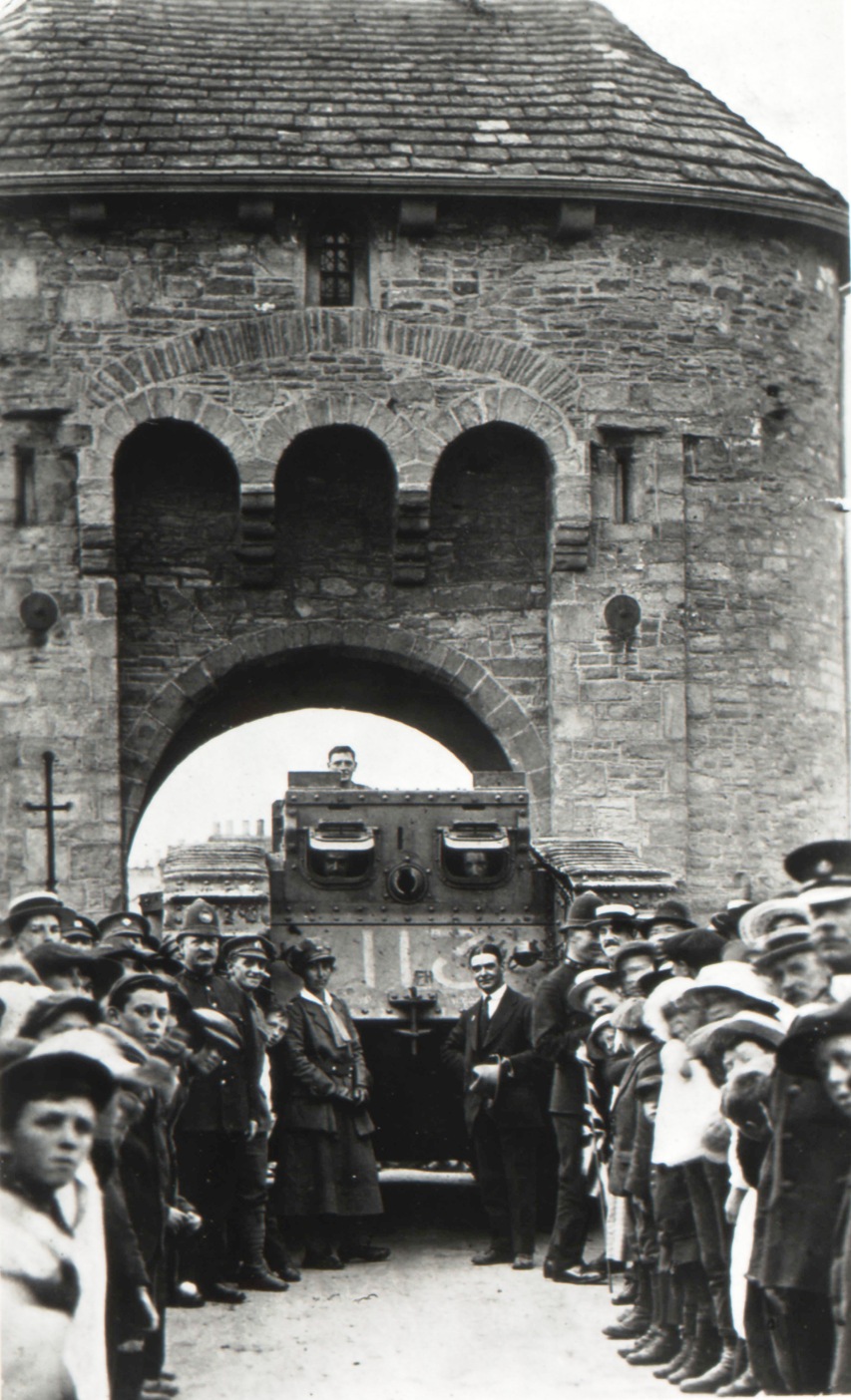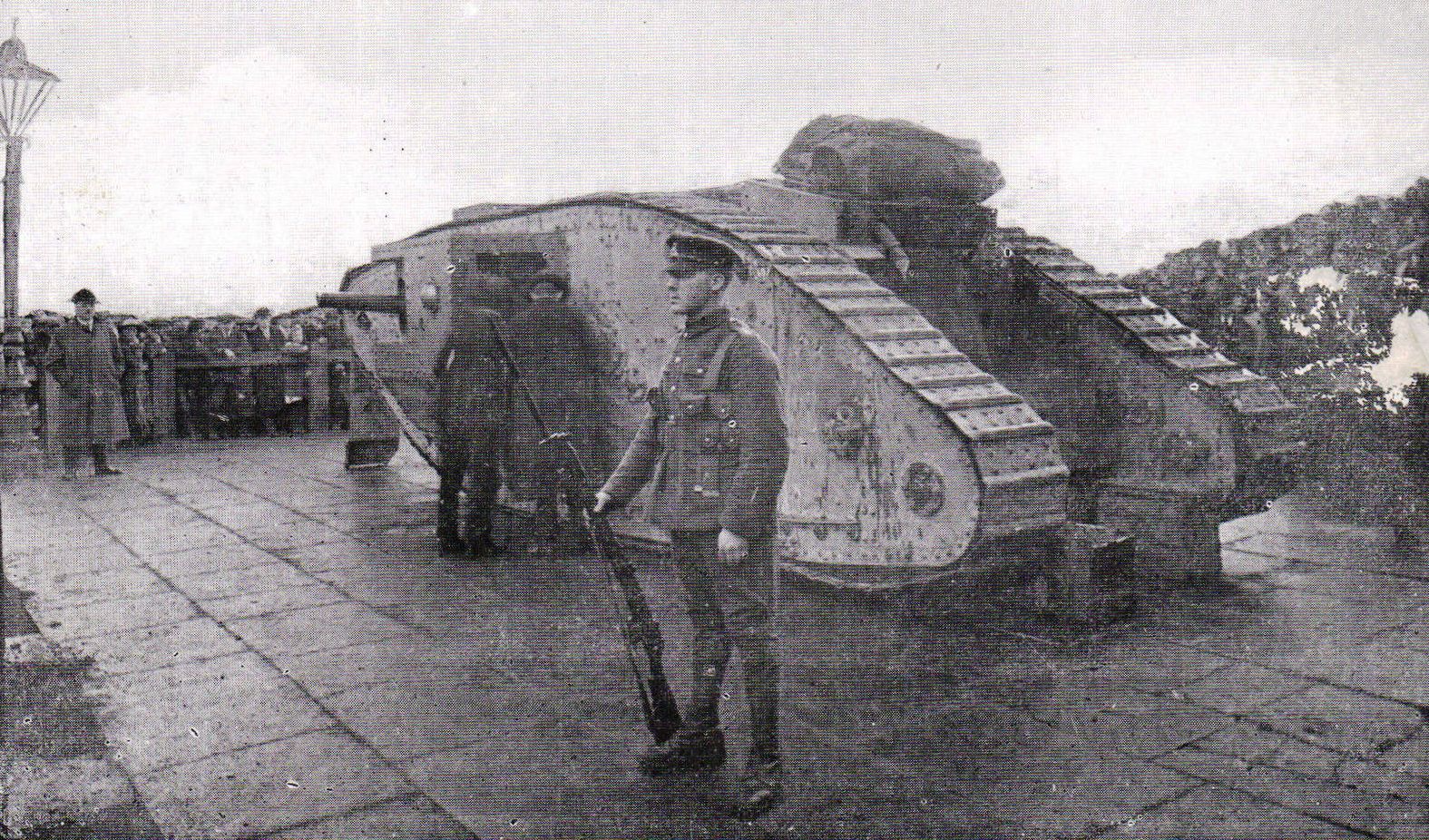 Click
for Site Directory
Click
for Site DirectoryJulian The Tank Bank at Monmouth 1918
In July 2014 I was approached by the BBC Radio to give a short radio clip about any event I considered significant
related to the experiences of the people of the town of Monmouth in the Great War. I have always been fascinated
by the events that occurred in Monmouth during the Great War. The war was expected to be over by Christmas but
the next five years changed the town and people of Monmouth as well as many other places in this country.
The Monmouthshire Beacon was keen to report on the news both national and local. On August 7th 1914 Page 3 of
the
paper had headlines: "Great European Struggle"
and "England Declares War on
beginning of the war in national terms and also more local events such as: "Welsh Camp Broken Up": "The camp
of the Royal Welsh Fusiliers and the South Wales Borderers at Capel Bangor, near Aberystwyth, which was to have
continued until Saturday next, is to be broken up immediately. Orders to disband were received on Monday and stores
and
equipment were at once loaded."
Monmouth was a typical country County town and blood sports were a regular event but one small advert caught my eye:
"HUNTING
APPOINTMENTS
MR
CLAY'S SUBSCRIPTION OTTER HOUNDS
Will
meet weather permitting
Tuesday
Aug. 11th……
At
10.30 a.m.
Friday
Aug. 14th……
At
9.45 a.m.
Crisis
permitting"
So
despite a war being declared otter hunting was to take place provided the crisis
permitted!
I have always been intrigued by the story and pictures of Julian the Tank which came to Monmouth in July 1918 to raise funds for the
war by selling War Bonds. I met the Producer for BBC Cymru Wales on the famous Monnow Bridge on 29th March 2014.
We walked through the town and I talked about the various stories and structures that had connections to the Great War.
We went into St. Thomas's church at the top of Cinderhill Street and looked at the Great War War Memorial outside on
the roundabout and in the church.
There was a shop at 22 St. Mary Street that was known as "The War Shop", it was set up to provide hand made comforts
for the troops, balaclavas, socks, mittens. The use of rooms in the shop was offered via the Monmouth Beacon in 1915
by a Miss Carless, President of The Old Girl's Association at the Girl's Haberdashers School. The shop kept a large stock
of wool and other items that were given free to those who could turn them into a garment for the troops.
Me with the producer at 22 St. Mary Street that was known as "The War Shop"
Me with the producer at 22 St. Mary Street that was known as "The War Shop"
I have always thought that 22 St. Mary Street should have a plaque to commemorate the thousands of items
provided for the troops.
The shop front has gone and it is now converted into dwelling houses.
We also looked at the site of the Red Cross hospitals that were set up in the town, initially in St.James's Square and
eventually in Hereford Road.
The first site for a Red Cross Hospital in the Great War
and the War Memorial at Monmouth.
Of all the stories the one about Julian The Tank was chosen and here is the link for it:

Julian The Tank on Monnow Bridge facing The Green Dragon public house July 1918.
To hear the the sound clip cut and past this link into your browser: http://www.bbc.co.uk/programmes/p020y1v5
Julian The Tank left Monmouth having completed it's task and was also sent to Worcester to raise funds.
